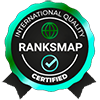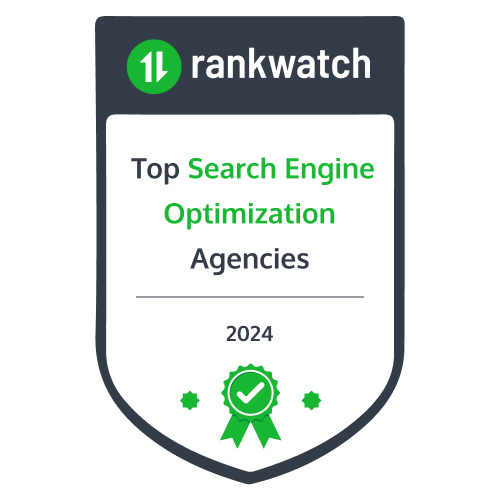Ecommerce SEO
Ecommerce SEO is the process of improving the visibility and ranking of an online store’s website in search engine results pages (SERPs). The goal is to attract more organic (non-paid) traffic from search engines like Google, Bing, and Yahoo by making the site more relevant and authoritative for specific search queries. Effective ecommerce SEO involves several strategies and best practices, including:

Keyword Research
- Identifying Keywords: Finding the terms and phrases potential customers use when searching for products.
- Long-Tail Keywords: Targeting specific, less competitive phrases that may attract more qualified traffic.
On-Page SEO
- Title Tags and Meta Descriptions: Crafting compelling and keyword-rich titles and descriptions for each page.
- Product Descriptions: Writing unique, detailed, and keyword-optimized descriptions for each product.
- Headers (H1, H2, etc.): Using appropriate headings to structure content and emphasize key points.
- Image Optimization: Using descriptive filenames, alt texts, and compressing images to improve load times and searchability.
Technical SEO
- Site Structure: Creating a logical and user-friendly navigation structure.
- Mobile Optimization: Ensuring the site is responsive and functions well on mobile devices.
- Page Speed: Improving load times to enhance user experience and reduce bounce rates.
- URL Structure: Using clean, keyword-rich URLs.
Content Marketing
- Blog Posts: Writing informative and engaging blog posts related to the products or industry.
- Buying Guides and Tutorials: Creating helpful content that guides users in making purchasing decisions.
- User-Generated Content: Encouraging reviews and ratings to build trust and provide fresh content.
Link Building
- Backlinks: Earning links from reputable sites to build authority and improve rankings.
- Internal Linking: Creating links between related products and content within the site to enhance navigation and SEO.
Local SEO
- Google My Business: Setting up and optimizing a Google My Business profile for local searches.
- Local Keywords: Targeting keywords with local intent if the business has a physical presence.
Analytics and Monitoring
- Tracking Performance: Using tools like Google Analytics and Google Search Console to monitor traffic, rankings, and user behavior.
- Regular Audits: Conducting regular SEO audits to identify and fix issues and to continually improve the site’s SEO.
E-COMMERCE SEO SERVICES
If you’re looking for the best eCommerce SEO services, you’ve come to the right place. Infidigit, a leading eCommerce SEO services, specialises in getting your website ranked at the top of Google. With extensive experience working with top brands, our eCommerce SEO specialists can help you achieve top Google SERP rankings.

Why Do eCommerce Websites Need SEO?
- Online shoppers invest significant time in researching products before making a purchase, especially for high-value items.
- If your website isn’t visible on Google, you’re missing out on potential sales opportunities.
- SEO helps your website achieve top positions in search engine results, increasing visibility to potential customers.
- Without SEO, potential customers may not even know your eCommerce business exists.
- As a leading eCommerce SEO agency in Mumbai, India, we specialise in driving online traffic to eCommerce websites.
- Our SEO strategies ensure your eCommerce website is optimized to maximize product sales and boost business revenue.
- Even with excellent products, services, and content, proper SEO is essential for better performance in search engines.
- We have extensive experience working with various eCommerce businesses, providing the expertise needed to succeed.
ATTRACT CUSTOMER TRAFFIC & GROW SALES WITH OUR ECOMMERCE SEO SERVICE
Success in eCommerce hinges on your customers’ ability to easily find your products online. In a highly competitive market, standing out is crucial.
Our comprehensive SEO plans are designed to elevate your eCommerce website’s search engine rankings, increase brand awareness, and drive high-quality traffic to your online store. This results in higher sales and increased revenue. We employ detailed SEO checklists and audits to ensure your eCommerce website operates smoothly and effectively.
What is eCommerce Site Architecture
- Front-End Architecture:
- User Interface (UI): Design elements such as layout, colors, fonts, and images that users interact with.
- Navigation: How users move through the site, including menus, search functionality, and breadcrumb trails.
- Responsive Design: Ensuring the site works well on various devices (desktops, tablets, smartphones).
- Client-Side Scripting: Technologies like JavaScript and frameworks such as React or Angular that enhance interactivity.
- Back-End Architecture:
- Server-Side Scripting: Languages and frameworks like PHP, Python (Django), Ruby (Rails), or Node.js that handle the business logic.
- Database Management: Systems like MySQL, PostgreSQL, MongoDB for storing and managing product information, user data, orders, etc.
- Server Infrastructure: Physical or cloud-based servers where the site is hosted. This includes web servers (like Apache or Nginx) and application servers.
- Database Architecture:
- Relational Databases: Structuring data in tables with relationships, suitable for transactional operations.
- NoSQL Databases: For flexibility and scalability, storing data in formats like documents or key-value pairs.
- Security Architecture:
- SSL/TLS: Encryption protocols for secure data transmission.
- Authentication and Authorization: Mechanisms for user login, roles, and permissions.
- Data Protection: Ensuring customer data is stored securely and in compliance with regulations (e.g., GDPR).
- E-commerce Platform:
- CMS/Framework: Platforms like Magento, Shopify, WooCommerce, or custom-built solutions.
- Extensions and Plugins: Add-ons to enhance functionality (e.g., payment gateways, SEO tools, analytics).
- API and Integration:
- Payment Gateways: Integrating with services like PayPal, Stripe for processing payments.
- Shipping Providers: Integration with shipping services to manage logistics.
- Third-Party Services: Integrations with marketing tools, CRM systems, inventory management systems.
- Performance Optimization:
- Caching: Using techniques like CDN (Content Delivery Networks) and server-side caching to reduce load times.
- Load Balancing: Distributing traffic across multiple servers to ensure site reliability and performance.
- SEO and Analytics:
- SEO: Structuring URLs, meta tags, and content for search engine optimization.
- Analytics: Implementing tools like Google Analytics to track and analyze user behavior and site performance.
- Content Delivery:
- Static and Dynamic Content: Managing how different types of content are served to users.
- Content Management: Systems for creating, editing, and publishing content.
- User Experience (UX):
- Personalization: Tailoring the shopping experience based on user behavior and preferences.
- Customer Support: Features like live chat, FAQ sections, and contact forms to assist users.
Reviews from Our Clients
Affordable Search Engine Optimisation
Search engine optimization (SEO) is an important tool for businesses to increase their online visibility and attract more customers. However, SEO can be costly and many businesses are looking for affordable SEO services that can help them achieve their goals without breaking the bank. At SEO HERO, we help businesses get the most out of their online marketing efforts.


Services we offer





